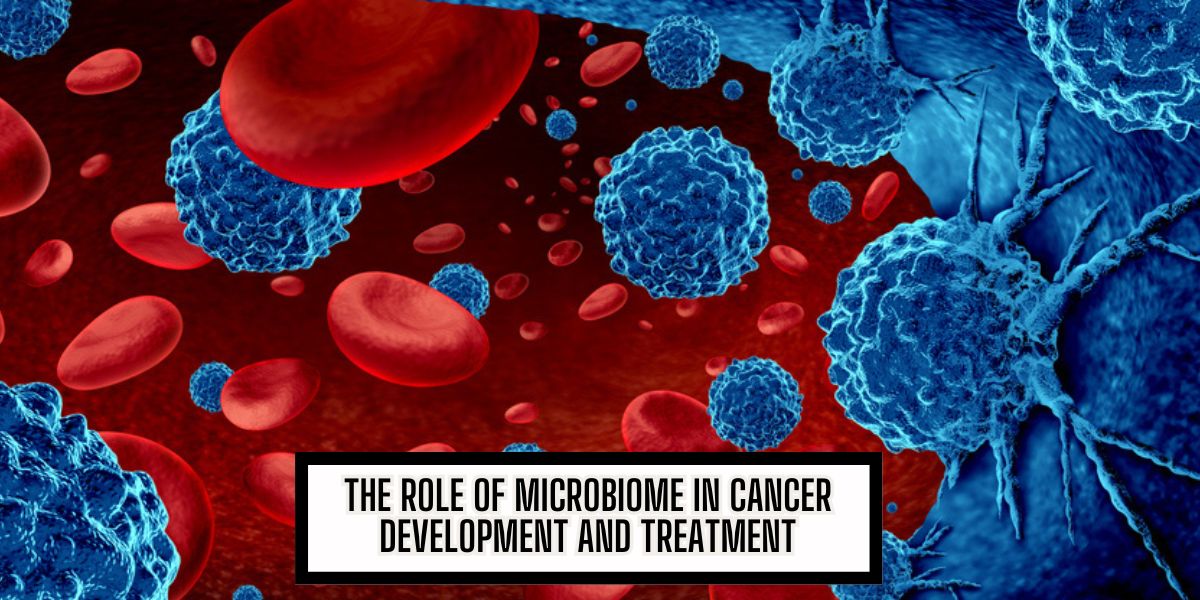BLOG
The Role of Microbiome in Cancer Development and Treatment

In recent years, the microbiome has garnered significant attention for its profound impact on human health. This intricate ecosystem of trillions of microorganisms, including bacteria, viruses, fungi, and their genetic material, resides primarily in our gut. Its influence extends far beyond digestion, playing a crucial role in immune function, metabolism, and even mental health. Intriguingly, the microbiome is now recognized as a key player in cancer development and treatment. This blog delves into the complex relationship between the microbiome and cancer, highlighting its potential in shaping future therapeutic strategies.
Understanding the Microbiome-Cancer Connection
The human microbiome is a dynamic and diverse community of microorganisms that coexist within our bodies. The gut microbiome, in particular, is a focal point of research due to its extensive interactions with host cells. Emerging evidence suggests that the microbiome can influence cancer development through several mechanisms:
- Inflammation and Immune Modulation: Chronic inflammation is a well-established risk factor for cancer. The microbiome can either promote or inhibit inflammation through its interaction with the immune system. For instance, certain gut bacteria can produce metabolites that modulate immune responses, potentially fostering an environment conducive to cancer development. Conversely, a balanced microbiome can help maintain immune homeostasis and protect against tumor formation.
- Metabolism of Carcinogens: Some gut bacteria have the ability to metabolize dietary components into carcinogenic compounds. For example, certain bacteria can convert dietary fats and proteins into metabolites that promote colorectal cancer. Understanding these microbial pathways can pave the way for dietary interventions to reduce cancer risk.
- Genotoxicity: Certain microbes can directly damage host DNA, leading to mutations and cancer development. For instance, specific strains of Helicobacter pylori are known to cause gastric cancer by inducing DNA damage and chronic inflammation.
Microbiome and Cancer Treatment
The microbiome’s influence extends beyond cancer development to impact the efficacy and toxicity of cancer treatments. Here are some key areas where the microbiome plays a role in cancer therapy:
- Chemotherapy and Radiation Therapy: The gut microbiome can affect how patients respond to chemotherapy and radiation. Some gut bacteria can metabolize chemotherapy drugs, altering their effectiveness and toxicity. For example, specific bacterial species have been found to degrade gemcitabine, a common chemotherapeutic agent, reducing its efficacy. Conversely, other microbes can enhance the therapeutic effects of certain drugs. Understanding these interactions can help optimize treatment regimens for better outcomes.
- Immunotherapy: Immunotherapy has revolutionized cancer treatment, offering new hope for patients with advanced cancers. However, not all patients respond equally to immunotherapy. Recent studies suggest that the gut microbiome plays a critical role in determining the response to immune checkpoint inhibitors, a type of immunotherapy. Patients with a diverse and balanced gut microbiome tend to respond better to treatment, while dysbiosis (microbial imbalance) is associated with poor outcomes. This insight has spurred interest in microbiome-based strategies to enhance immunotherapy efficacy.
- Probiotics and Prebiotics: Modulating the microbiome through probiotics (live beneficial bacteria) and prebiotics (compounds that promote the growth of beneficial bacteria) holds promise in cancer treatment. Probiotics can help restore microbial balance, reduce inflammation, and enhance immune function. Clinical trials are underway to evaluate the potential of probiotics and prebiotics as adjuvants to conventional cancer therapies.
Future Directions and Challenges
The burgeoning field of microbiome research offers exciting prospects for cancer prevention and treatment. However, several challenges need to be addressed to fully harness its potential:
- Individual Variability: The microbiome is highly individualized, influenced by genetics, diet, environment, and lifestyle. This variability complicates the development of standardized microbiome-based interventions. Personalized approaches that consider an individual’s unique microbiome profile may be necessary for optimal outcomes.
- Complex Interactions: The microbiome interacts with host cells and other microbes in intricate and dynamic ways. Deciphering these complex interactions requires advanced technologies and multidisciplinary collaboration. High-throughput sequencing, bioinformatics, and systems biology are among the tools that can help unravel the microbiome’s role in cancer.
- Safety and Regulation: The use of probiotics, prebiotics, and fecal microbiota transplantation (FMT) in cancer treatment raises safety and regulatory concerns. Rigorous clinical trials are needed to establish their efficacy and safety. Regulatory frameworks must evolve to keep pace with advancements in microbiome-based therapies.
Conclusion
The microbiome represents a frontier in cancer research, offering new insights into cancer development and treatment. By understanding the intricate relationship between the microbiome and cancer, researchers and clinicians can develop novel strategies to prevent and treat cancer more effectively. While challenges remain, the potential of the microbiome to transform cancer therapy is undeniable. As research progresses, the integration of microbiome-based approaches into clinical practice holds promise for improving patient outcomes and revolutionizing cancer care.

